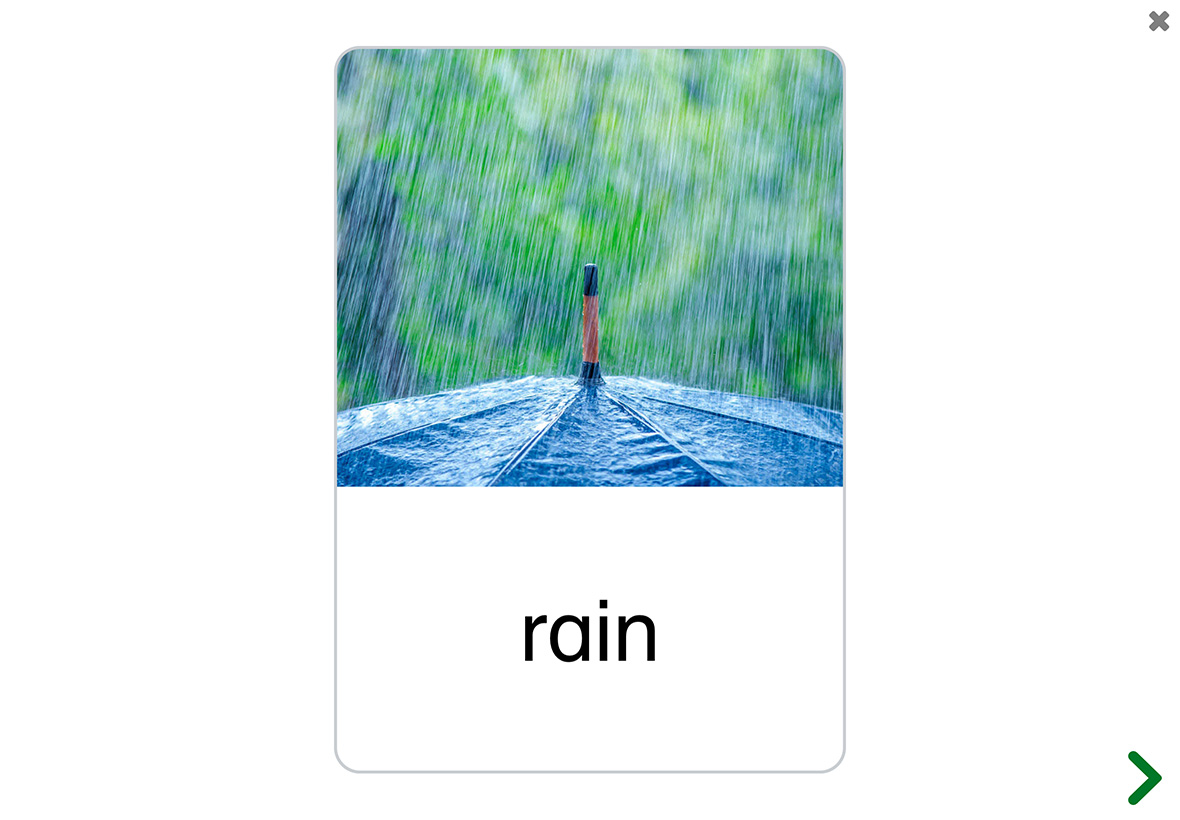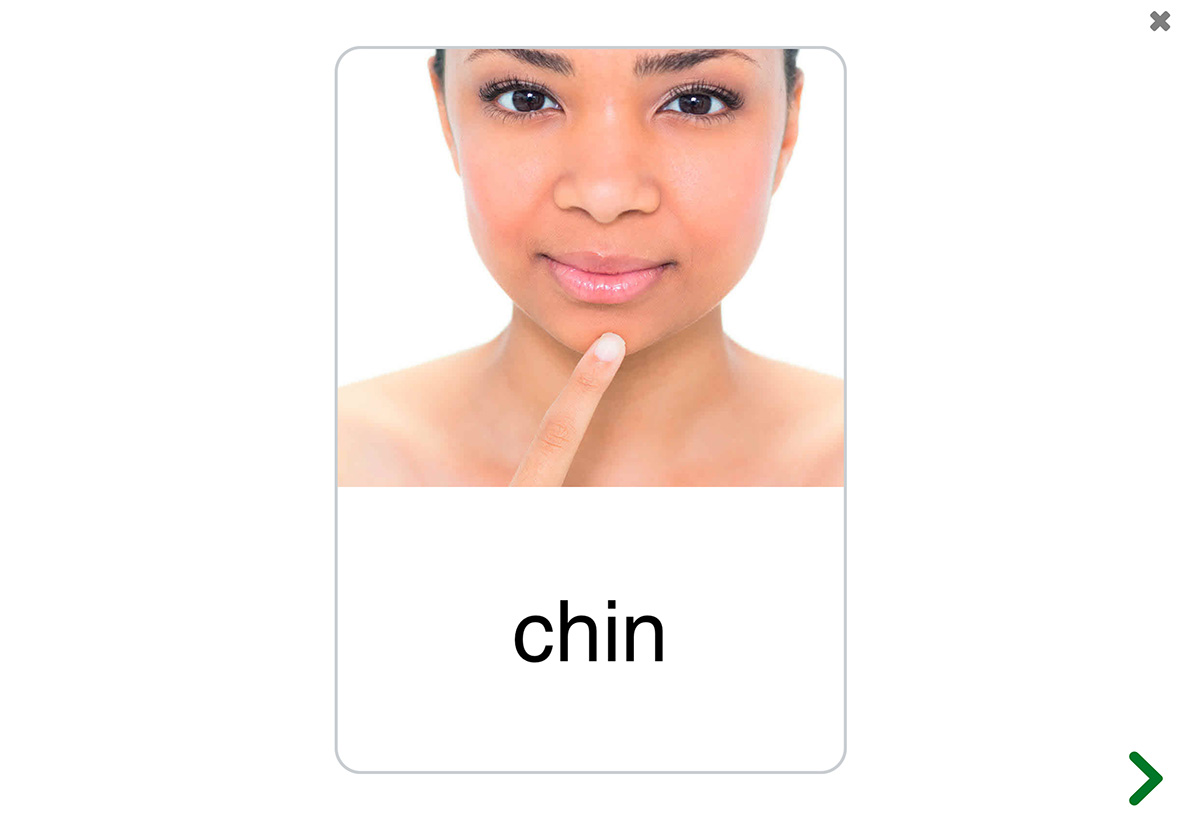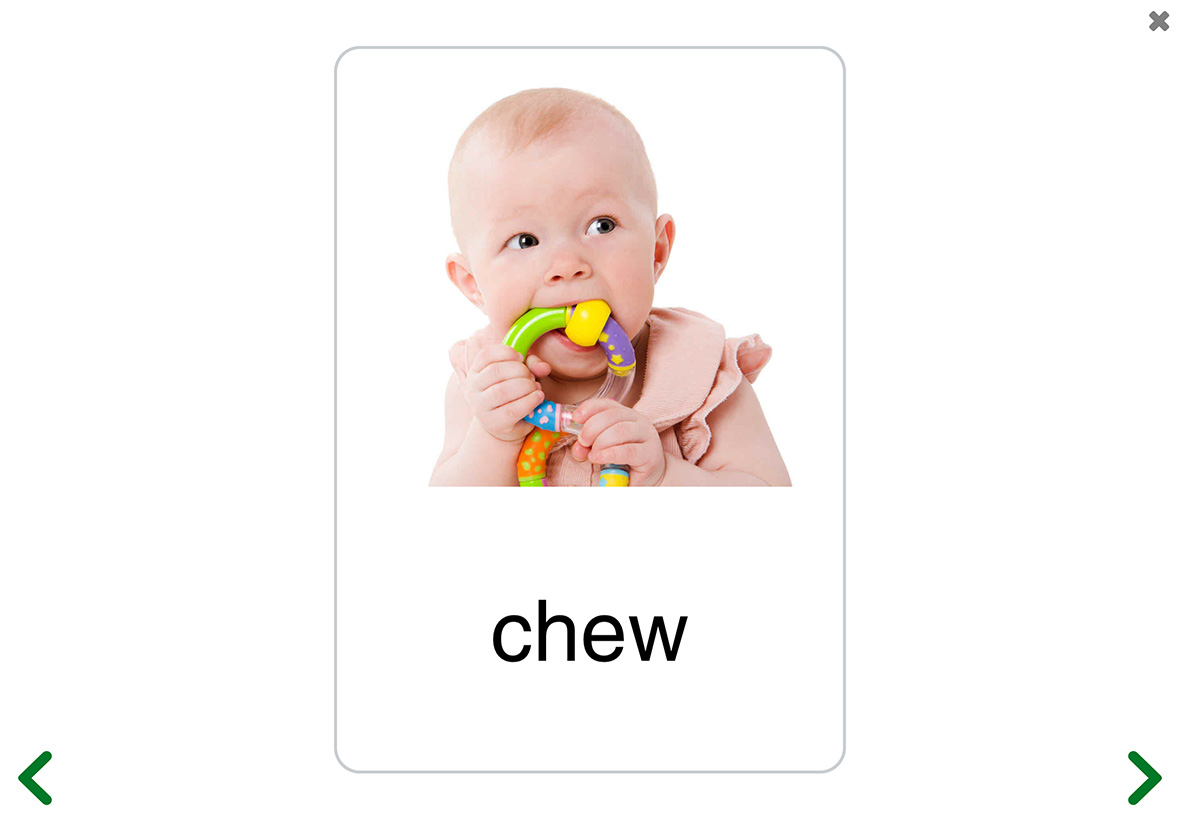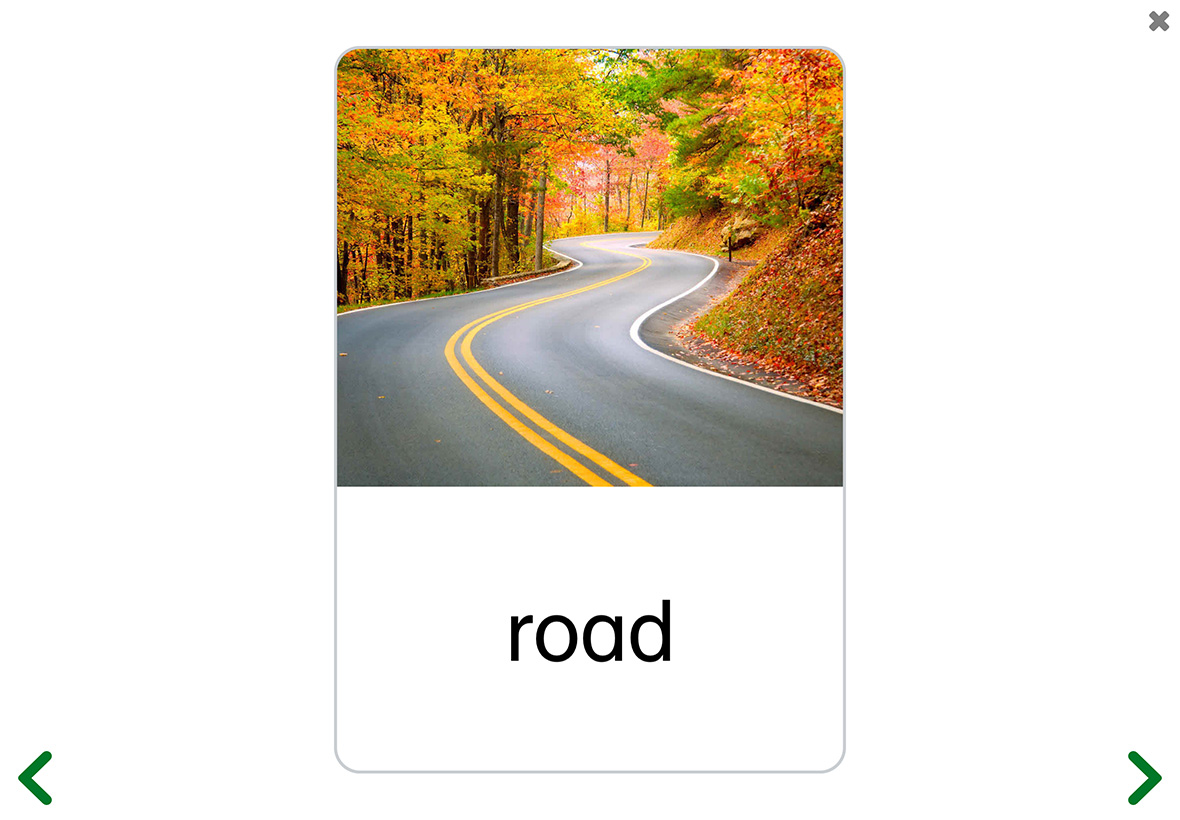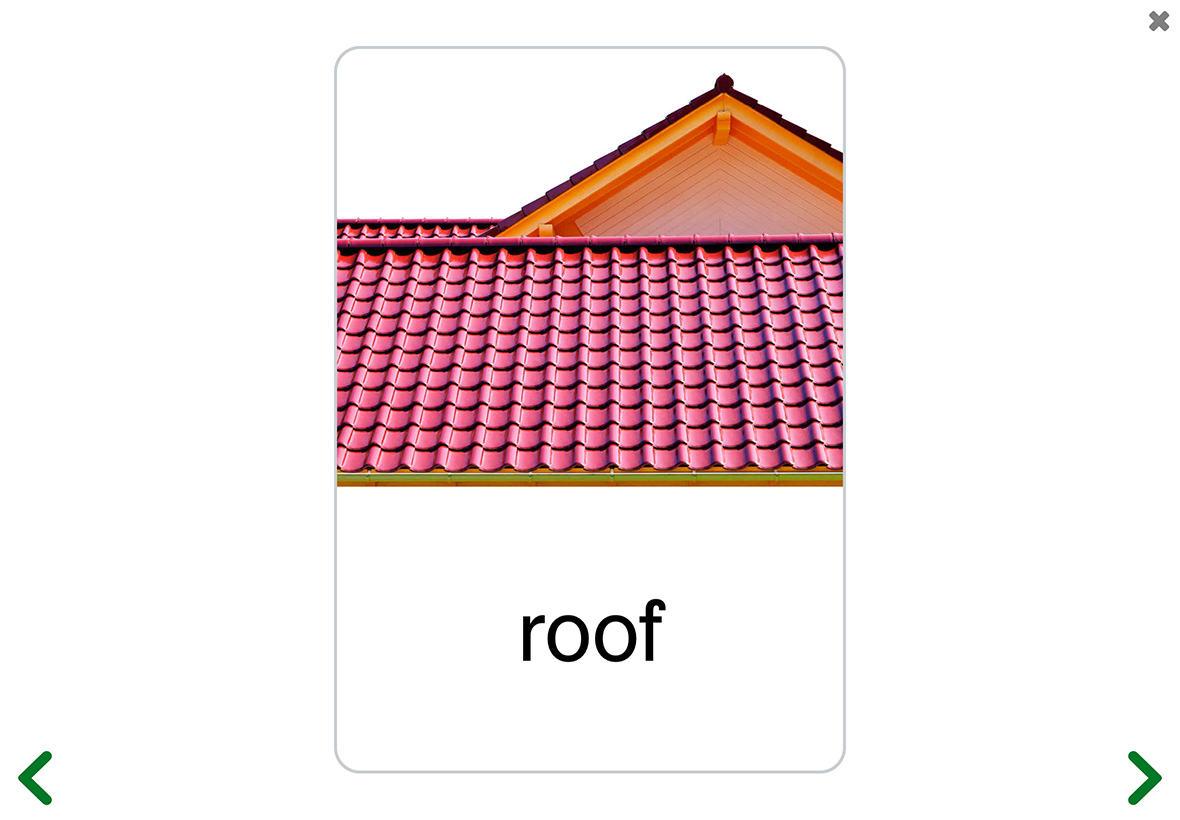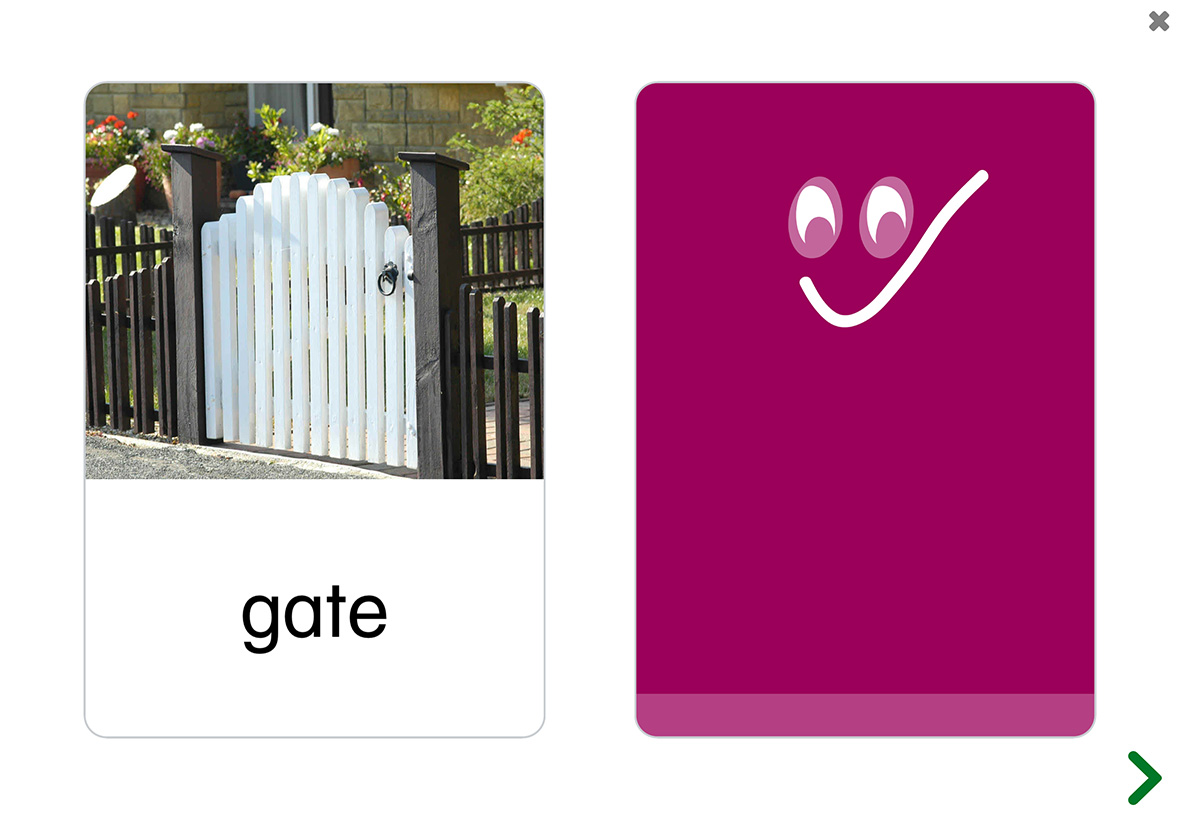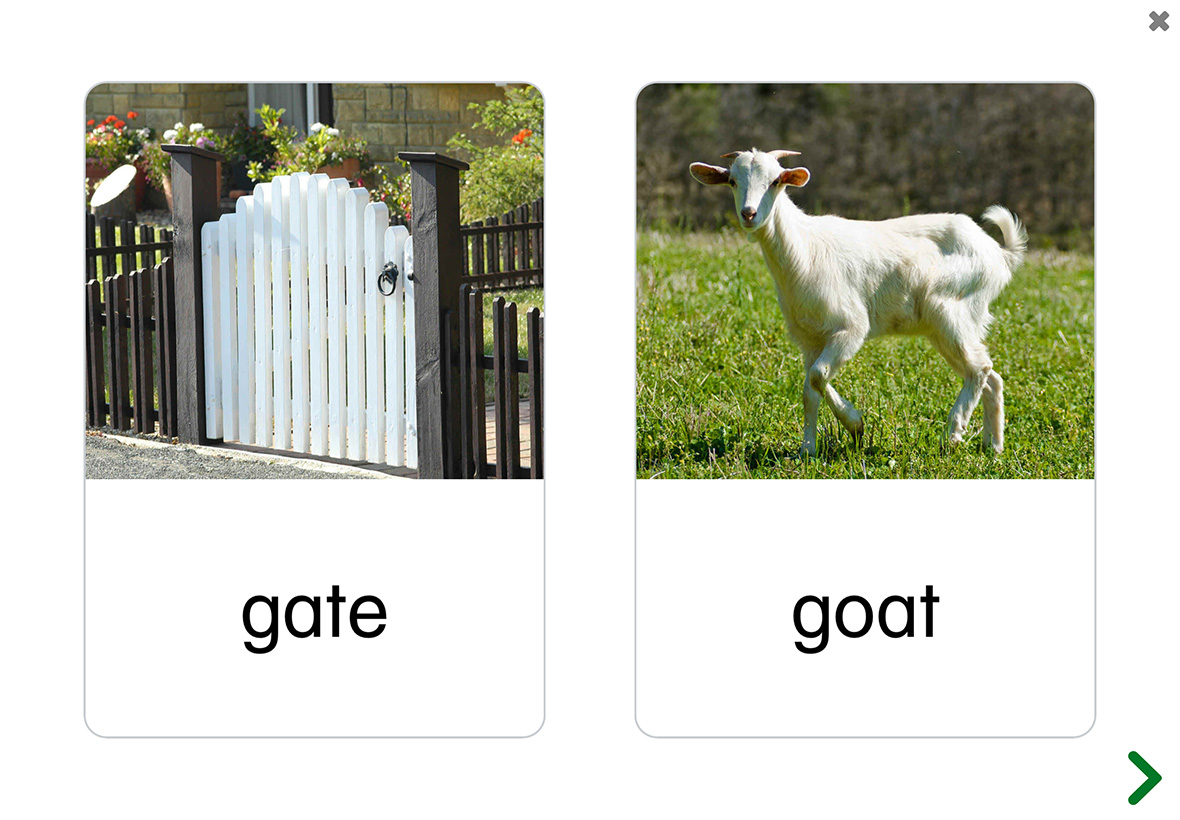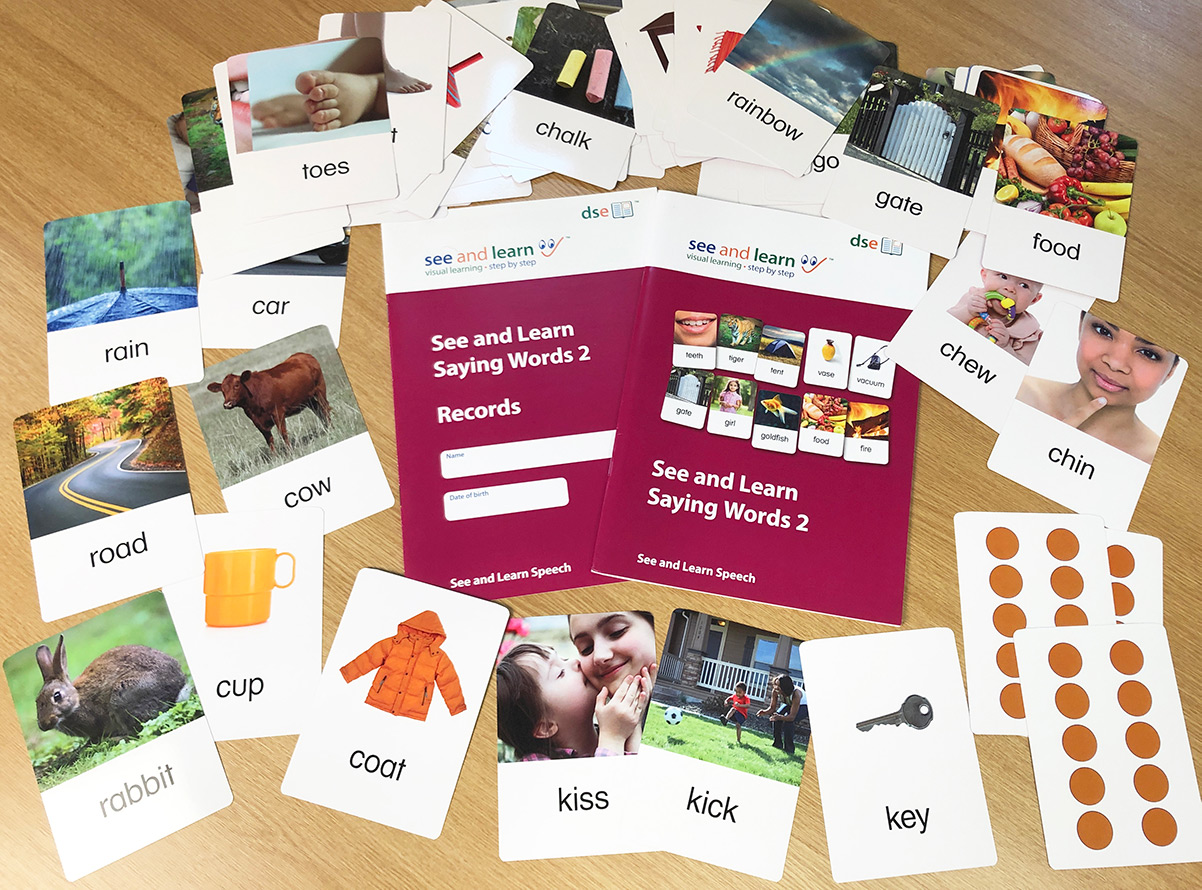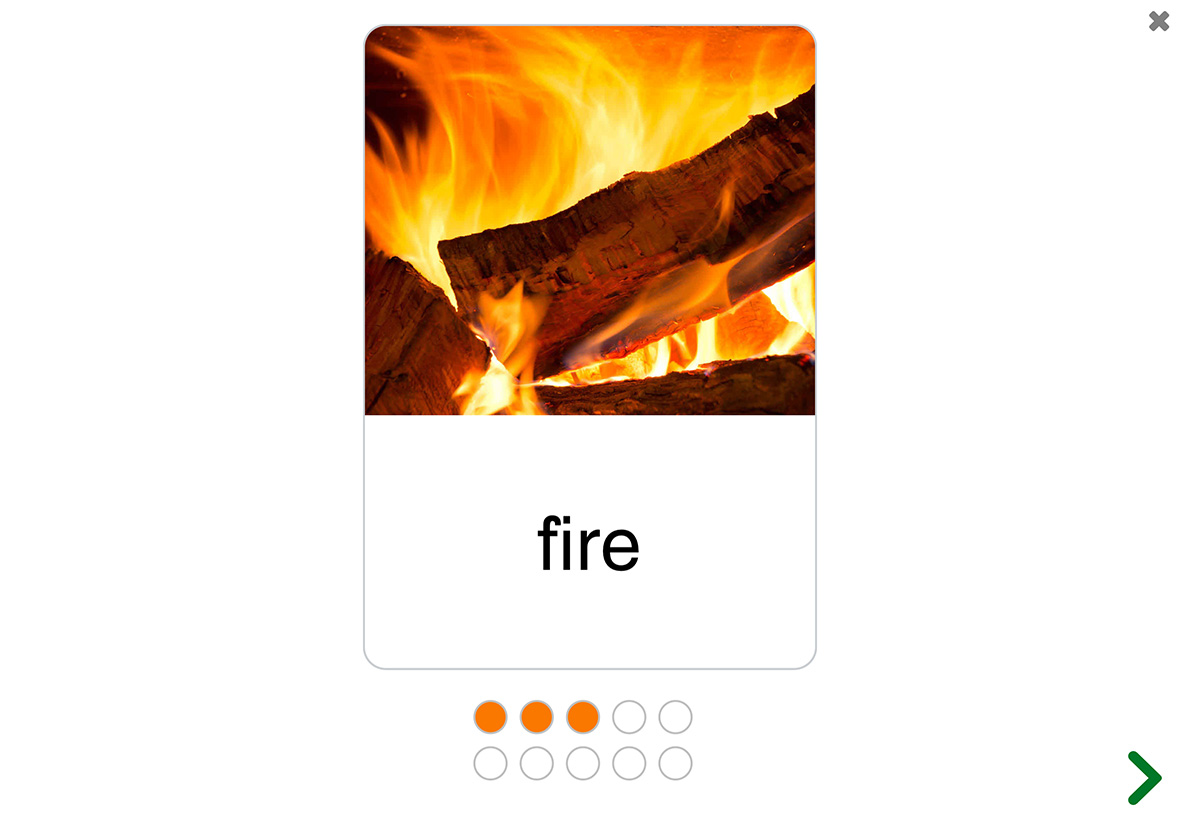Saying Words 2
See and Learn Saying Words 2 is the fourth step in See and Learn Speech. It is designed to help children with Down syndrome practice saying words that start with consonants that are usually produced next in development after those practiced in See and Learn Saying Words 1.
The activities are intended to supplement everyday opportunities to learn speech with the additional support that most children with Down syndrome, and children with similar additional learning difficulties, need to learn to speak clearly.
Learning goals
- Teach your child to associate pictures with 63 spoken words, each starting with a consonant (
c/k ,ch ,f ,g, r ,t andv ) and selected from vocabulary suitable for younger children - Practise saying 63 spoken words to develop more complete and accurate production
- Rehearse saying spoken words in repetitive sets to continue to improve clarity and consistency of production
- Encourage your child to pay attention and engage in teaching activities for short periods of time
Features
- Designed to build on the children's relative strengths in visual processing and to minimise working memory demands
- Designed to advance in small steps and offer lots of opportunities for practice and consolidation
- 3 teaching activities: Learning to Say Words, Practising Saying Words and Rehearsing Saying Words
- Simple design to avoid distraction and focus attention on the learning tasks
- A detailed guide with step-by-step instructions
- Record forms to track your child's progress and plan the teaching activities
- Resources for teaching in any English dialect (optional spoken prompts are included in the app editions with UK and US accents)
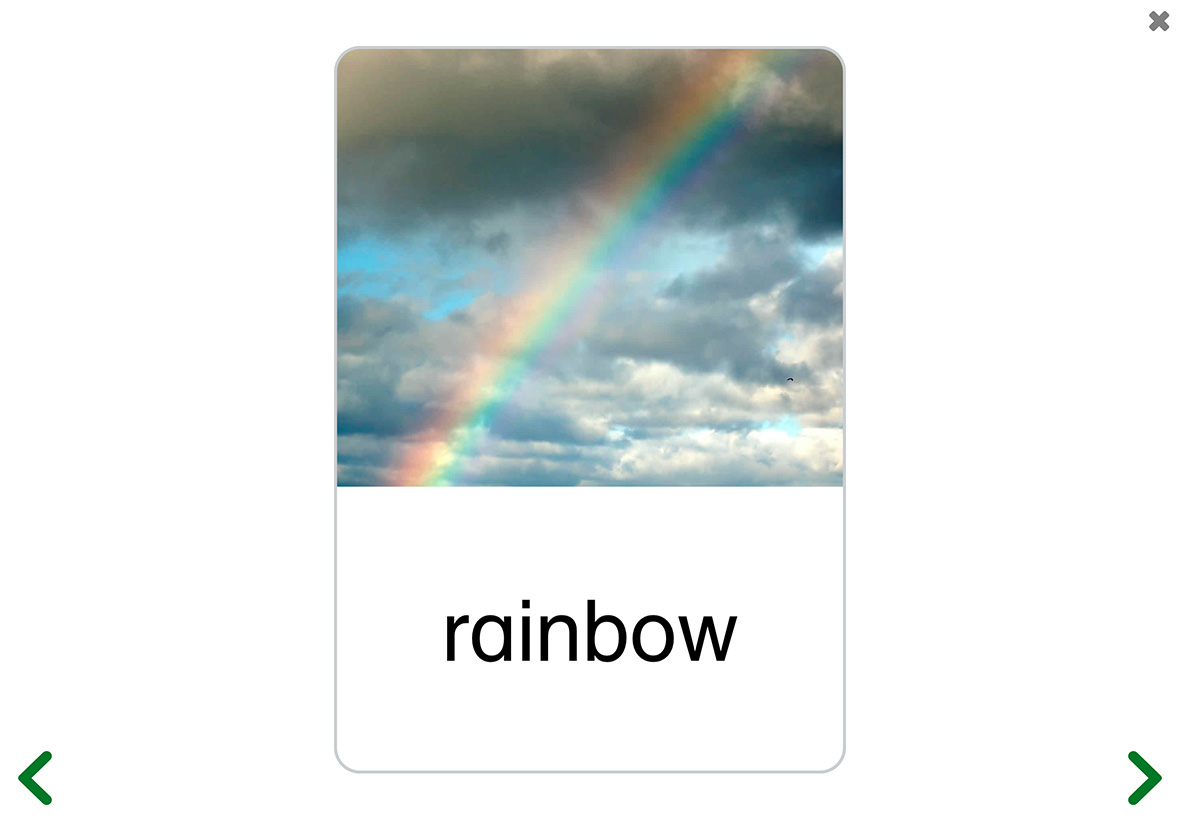
When to start
Children can start the activities in See and Learn Saying Words 2 when they:
- can produce at least some of the consonants c/k, ch, f, g, r, t and v - for example, g, and t
- can produce simple combinations of these consonants and a vowel - for example, tea and key
Children who have progressed through the activities in See and Learn Saying Words 1 will be ready to start the activities in See and Learn Saying Words 2.
We recommend that young children practice these activities as soon as they meet these criteria. The activities are also suitable for older children who need additional practice to improve their speech clarity.
See and Learn Progress Tracker
Our online progress tracker is coming soon.
Use it to monitor and support your child's development, with advice on activities and strategies to promote development, and guidance on which See and Learn steps may be able to help.
Next steps
Children who have learned to say the words practiced in See and Learn Saying Words 2 are ready to progress to saying more words with See and Learn Saying Words 3.
See and Learn Speech is designed to encourage clearer speech production. Children should be learning the meanings of words and how to use words to communicate. See and Learn Language and Reading teaches the meaning of spoken words and encourages children to practice saying new words. It is designed to be used alongside See and Learn Speech.
Many children with Down syndrome will progress more slowly with speech production than word learning. Slower progress with speech development is not a barrier to learning new words and phrases. Children can communicate their understanding or words via sign or gestures (for example, pointing a pictures or written words) even if they are still learning to say the words clearly.
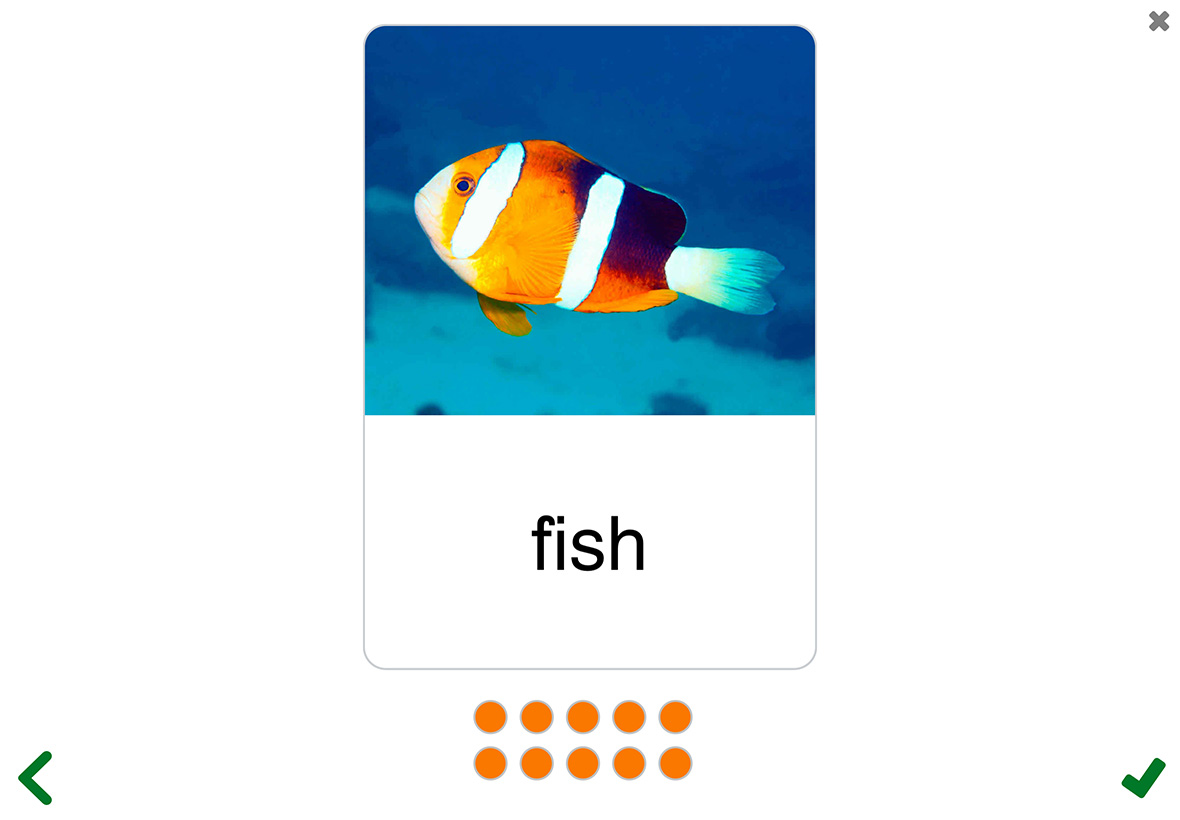
How to buy
See and Learn Saying Words 2 is available as a printed kit or as an app for Apple iPads.
